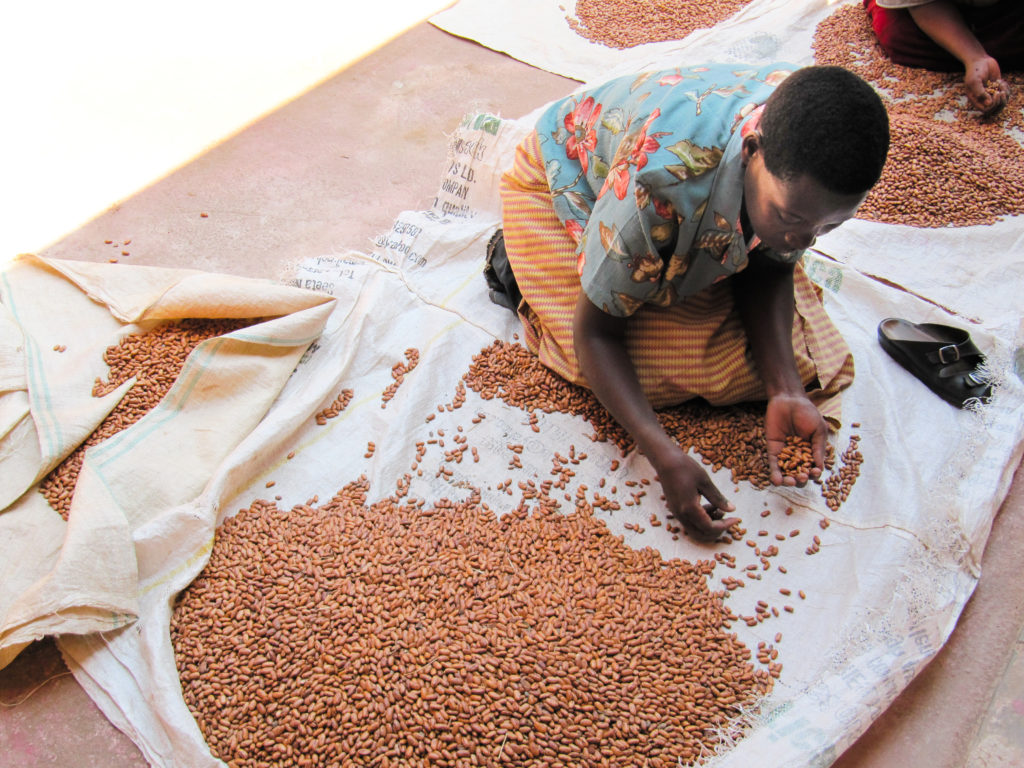Phytosanitary Risk Management team share expertise at ESCON 2019
An entomologist from CABI’s Phytosanitary Risk Management (PRMP) team has participated in the International Conference on Environmental Toxicology and Health (ESCON 2019) held in Islamabad, Pakistan. Muzammil Farooq, representing the PRMP team, participated in the event – organized by the Department of Environmental Sciences, COMSATS University (CUI), Vehari campus – by giving a presentation entitled…
Growing agriculture: nutrition community points the way to achieving SDG2 by 2030
By Shenggen Fan, Sivan Yosef, and Rajul Pandya-Lorch The Sustainable Development Goals (SDGs) have launched a race to transform our world for the better little more than a decade from now. The goals are idealistic, setting a high bar for every aspect of quality of life, from health and education to gender equality and climate…
Can a ‘diet’ of digital data really help feed the world?
Last week (29 January 2019) CABI was awarded a $1.49 million grant from the Gates Foundation to work with them to help increase food security in India and Ethiopia through better access to data on soil health, agronomy and fertilizers. In this blog Communications Manager Wayne Coles looks at whether or not the use of…
One health – human, animal, environmental and plant health
Ahead of One Health Day tomorrow (3rd November 2018), Robert Taylor, CABI’s Editorial Director, explores the relationships between human, animal, environmental and plant health… The ‘One health’ initiative launched in 2007 was designed primarily to break down the barriers between human and veterinary medicine, particularly for dealing with zoonotic diseases. The link between BSE and…
The impact of invasive species on human health
By Giuseppe Mazza and Elena Tricarico, Università degli Studi di Firenze, Italy Invasive species are becoming a popular topic in newspapers: when articles appear, they mainly report the damages invasive species can cause to our ecosystems (e.g. reduction or disappearance of native species as well as habitat modification) or to our economic activities: fishing or…
Lancet Countdown reports on climate and health
[Photocredit: iStock] Lancet Countdown has published its first annual report, monitoring how we are doing on action against climate change in relation to health. Its findings show that climate change is affecting health today and affects those in developing countries disproportionately. Twenty-five years of inaction on climate change have damaged our health, says the report,…
Omega oils 3, 6, 7 and 9 – what’s the difference?
Many people are not sure how omega oils feature in their diet and in what quantities they should be consuming them. Considering that many of are not getting even the minimum levels in our diet that are deemed “critical” to health by the World Health Organization (WHO), maybe we should rethink our 'laissez faire' attitude.
‘One health’ and the economics of the human animal bond.
One of a series of blogs written by CABI editors for One Health Day November 3rd 2016 The term ‘One health’ was created to emphasise the fact that health of humans and animals were inter-linked and that the control of zoonotic diseases is best achieved by breaking down the barriers between human and veterinary medicine, developing…
The sugar industry and the World Health Organization – still at odds
I recently attended the International Sugar Organization’s annual conference in London, hoping to hear Dr. Francesco Branca of the World Health Organization explaining the rationale for the WHO’s recommendations on how much sugar people should eat, and see what response he got from the assembled sugar industry representatives and how he responded to that. As…
Arab world holds first public health conference
CABI is attending the First Arab World Congress on Public Health this week. Opening in Dubai tomorrow, the conference will be a forum for leaders in public health to exchange knowledge and develop best practice in the region. Speakers from Europe, the USA and Australia, will also bring an international perspective to the public health…
- « Previous
- 1
- 2
- 3
- Next »




